Shaping the Future of Indonesia’s Energy Transition Through 5G Industry Framework
Jakarta, 17 September – Indonesia is intensifying its energy transition agenda, aiming to secure resilience, foster a green economy, and achieve its ambitious net-zero target by 2060.
(Photo Credit: Mufti Warits)
BINUS University is a leading advocate for innovation and collaboration within the green industry. At the prestigious Kumparan Green Initiative Conference 2025, Prof. Firdaus Alamsjah, Director of CREATES (Part of BINUS Higher Education, it provides professional services that bridge academia and industry, leveraging our academic and practical expertise to deliver impactful organizational solutions) served as a key expert to underscore the critical role of digitalization in energy transition. Together with top industry and government experts, he engaged in dynamic discussions on enhancing resilience in the digital age.
Addressing the path toward long-term growth in the age of digital energy transition, as an expert in Industrial Engineering, he introduced the 5G Industry Framework as a strategic model.
(Photo Credit: Mufti Warits)
“Businesses must set a green purpose, nurture green people, and form green partnerships. When these elements come together, industries can achieve green profit and, in the long run, help shape a Green Planet,” he explained.
This framework not only aligns with Indonesia’s sustainability goals but also provides a practical roadmap for industries to embed environmental values into their operations. In line with this, a recent study by Guo et al. (2025) found that in China, digital transformation has a significant impact in reducing carbon emission intensity by 9.97% in upstream enterprises and 11.9% in downstream enterprises, underscoring its strong spillover effects across the industrial chain.
(Photo Credit: Mufti Warits)
“The competitiveness of Indonesia’s green industry will depend on lowering industrial emissions, particularly from supply chains that account for 70–80%. Each institution should establish a clear vision and mission for green transformation, with digitalization serving as a key driver of green innovation. For example, in the supply chain, Artificial Intelligence (AI) can be used for production efficiency projections, while Blockchain enriches data management, resulting in more accurate analyses and better decisions,” added Prof. Firdaus.
He also highlighted how digital technologies are key enablers of green transformation. through the ABCDIM concept, which encompasses:
- Artificial Intelligence (AI) – for predictive analytics and production efficiency
- Blockchain – for transparent and secure data management
- Cloud Computing – enabling scalable and energy-efficient IT infrastructure
- Data – as the foundation for informed decision-making
- Internet of Things (IoT) – for real-time monitoring and optimization
- Mobile Technology – to empower remote access and decentralized operations
(Photo Credit: Mufti Warits)
His remarks resonate with the economic outlook delivered by Coordinating Minister for Economic Affairs Airlangga Hartarto in his keynote speech. The Minister highlighted that the digital economy already contributes around 20% of Indonesia’s Gross Domestic Product (GDP), valued at IDR 15,000–20,000 trillion, and is projected to expand ninefold by 2045.
“The expansion of our digital economy is expected to generate over 14 million jobs while boosting our national competitiveness. This illustrates the significance of digitalization in transforming both our economy and our green future. Achieving this requires collaboration from all stakeholders, and I value the support of higher education institutions such as BINUS University in supporting this agenda to provide coworking spaces for young workers,” stated Minister Airlangga.
(Photo Credit: Mufti Warits)
Lastly, BINUS University is poised to be part of this movement as a catalyst for technology, business, and creative disciplines, shaping young talents with the knowledge, skills, and mindset needed to contribute directly to Indonesia’s vision of an energy-resilient and sustainable green economy.
(Words by: Hamzah Ramadhan and Mita Adhisti/Editor: Hamzah Ramadhan)



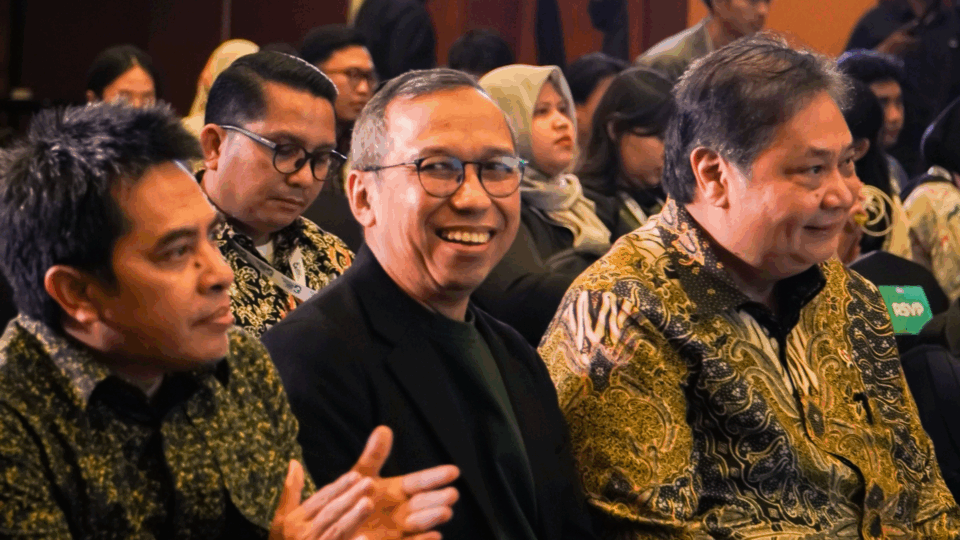
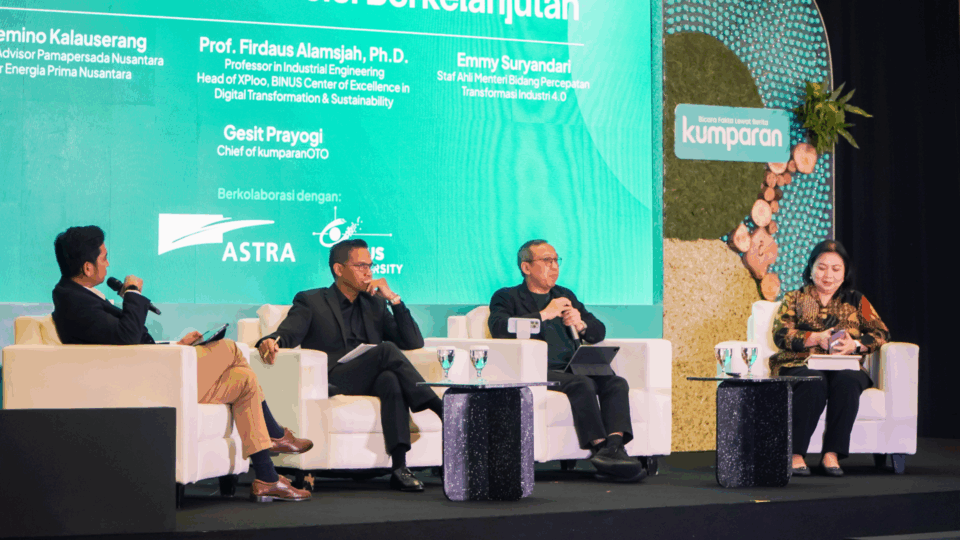
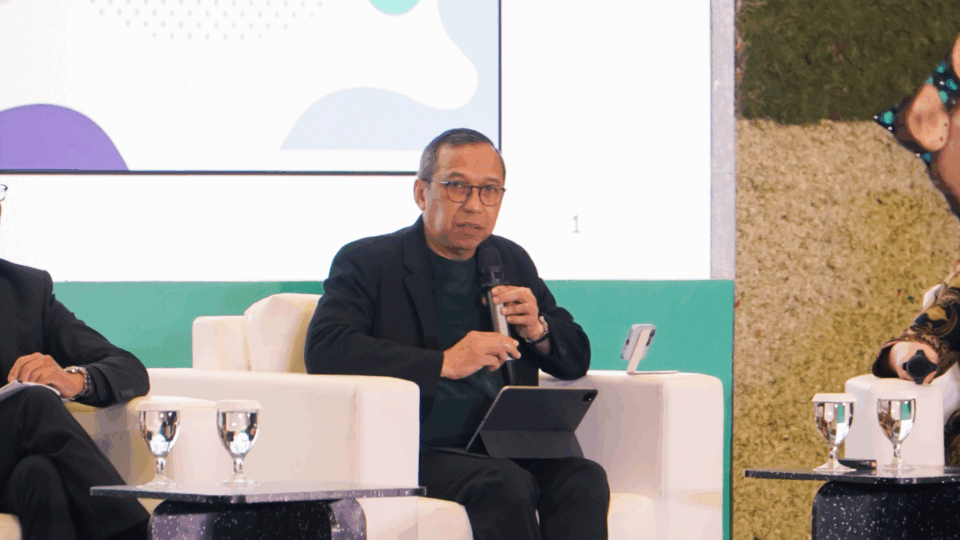
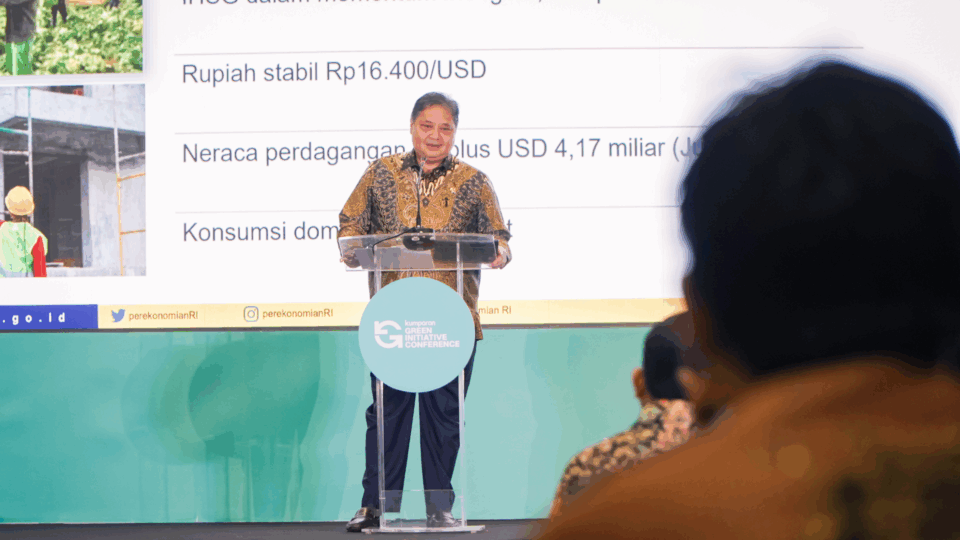
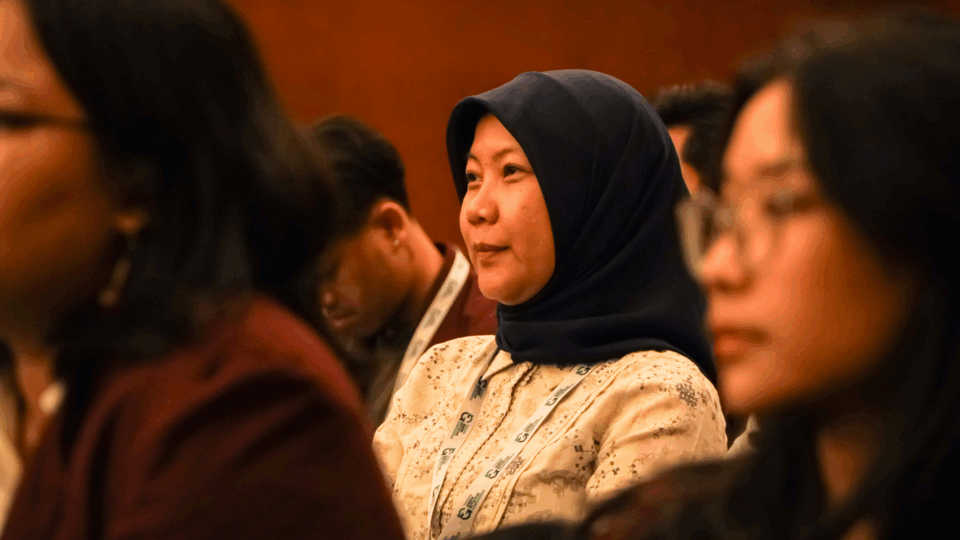

Comments :